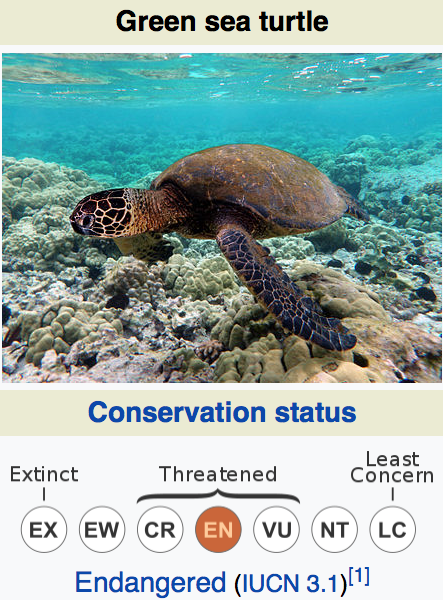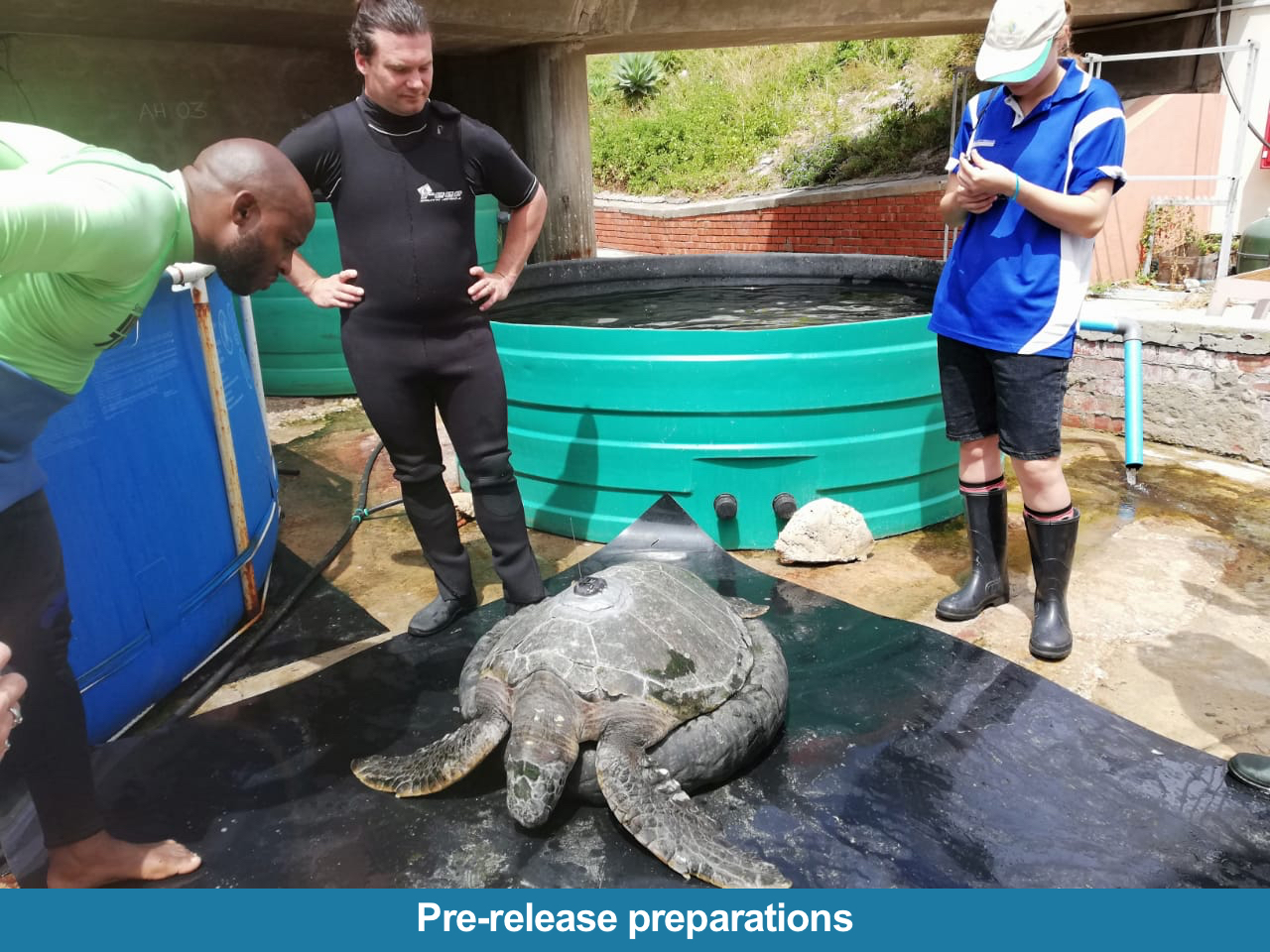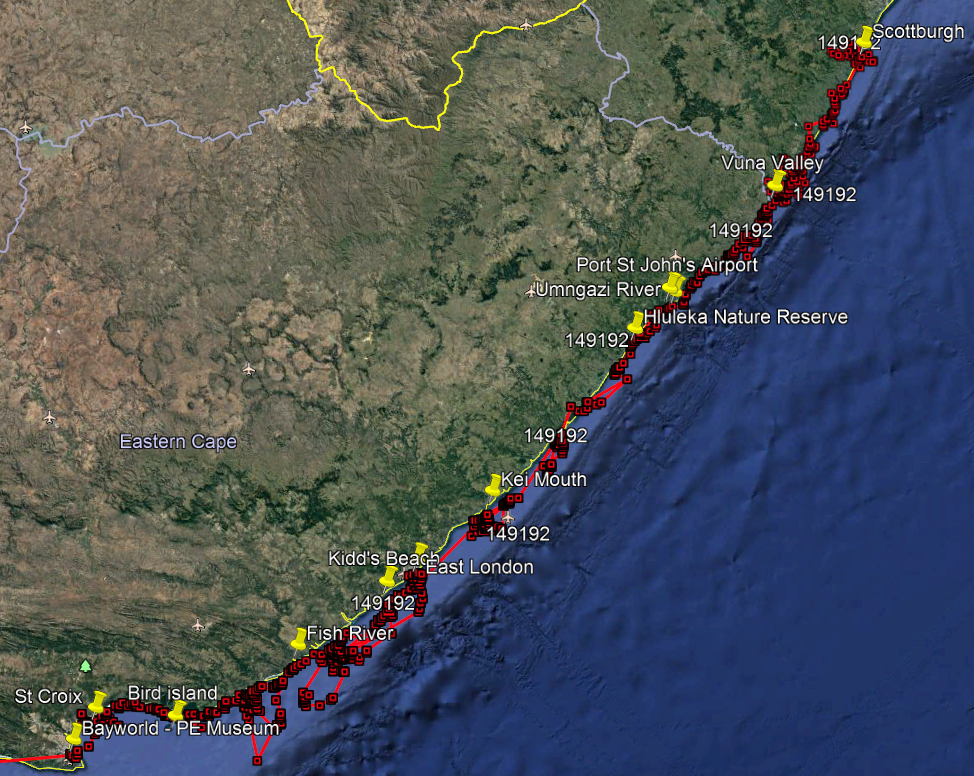Turtle Tracking
Green turtle
"Cedar"

Green turtles are large herbivorous marine reptiles. They inhabit shallow lagoons in tropical and subtropical areas.
Most populations are threatened due to human activity. In some countries, turtles and their eggs are hunted for food. Pollution indirectly harms turtles at both population and individual scales, as well as light pollution. Many turtles die after being caught in fishing nets. Also, real estate development often causes habitat loss by eliminating nesting beaches.
Green turtles are now listed on Appendix I of the Convention on International Trade in Endangered Species (CITES). As a result, it is illegal to import, export, kill, capture or harass green turtles.

"Cedar" the green turtle has been tagged by Bayworld (PE Museum).
"Cedar" stranded high up on the rocks off Seaview, Port Elizabeth on the 5th of May 2018. She came in at around 49.0kg and 77.5cm SCL unable to dive. With lots of TLC from Bayworld Turtle Rehabilitation staff and the help of the vets at Mount Croix Animal Hospital she now weighs just over 60kg at around 78.0cm SCL and went back home to the ocean on the 15th of December 2018.
Bayworld is the hub for Turtle rehabilitation and release in the Eastern Cape, located in the biodiversity rich Algoa Bay. The turtle programme is linked to the Nelson Mandela University and in conjunction with Addo SanParks. Although all releases are microchipped and DNA sampled, this is the first time an adult is Satellite tagged. This will provide invaluable information to add to the extensive species monitoring already underway in Algoa Bay and the waters off the Eastern Cape.
Data displayed: 07/02/2019










